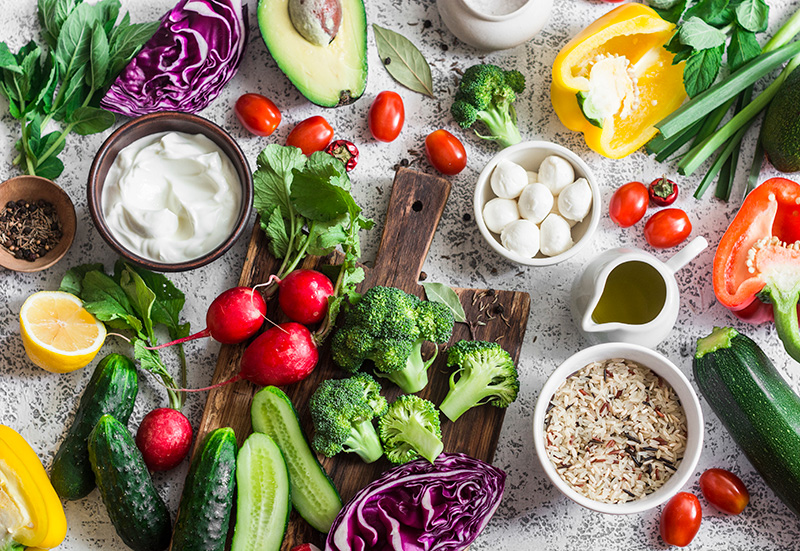More Health and Nutrition Bites
Related
Should you go vegetarian or vegan for your heart?
At almost every talk I give, somebody asks me about a vegan diet. Shouldn't we be telling our patients to go vegan, given the evidence against red meat in particular and animal protein in general?
The health risks for vegetarians
Today's article shows that even vegetarian or vegan diets can have drawbacks other than needing to eat more carefully to make sure you're getting the right nutrients.
Comparing the cost of meatless and non-meatless diets
There's been plenty of discussion about the supposed higher cost of eating healthy. The truth is that on the large scale, not only is it cheaper in the long run to eat healthier (because you'll spend so much less on health care), but on the small scale it's cheaper on a cost-per-serving basis.
Health & Nutrition Bites
Get the latest health and diet news - along with what you can do about it - sent to your Inbox once a week. Get Dr. Gourmet's Health and Nutrition Bites sent to you via email. Sign up now!
Diet quality and mortality

For those who enjoy eating land animal protein from time to time, today's research should come as a bit of welcome news.
We've seen plenty of research assessing the possible relationships between overall mortality (risk of death) and certain dietary patterns, such as Mediterranean diet or DASH diet. Other studies have examined the relationship between certain food types, such as legumes, red or processed meats, or whole grains, and mortality.
Today's research takes a holistic approach. The authors of this study examined the research regarding the relative healthfulness of specific plant-based and animal-based foods with respect to overall mortality. Based on that research they created a Diet Quality Index that gives positive points for 11 plant-based foods and negative points for 6 animal-based foods. Upon assessing an individual's usual diet, the authors could assign a score to that person's diet quality - the higher the score, the better.
In their forthcoming article in the British Journal of Nutrition, the authors accessed data gathered for the National Health and Nutrition Examination Survey (NHANES) for the period between 1999 and 2014. This included dietary, health, and demographic questionnaires for over 36,000 men and women at least 20 years of age.
Using the dietary surveys that trained interviewers conducted with the participants, the authors were able to score each participant's dietary quality according to their Dietary Quality Index.
The authors assigned a positive score to 11 plant-based foods: "whole grains, vegetables (excluding white potatoes), whole fruits, nuts/seeds/legumes, vegetable oils, and coffee tea," while 6 animal-based foods received a negative score: "fish/seafood, dairy, and poultry" as well as "processed meats, unprocessed red meats, and eggs." For positively-scored foods, participants got more points for greater intake of that food, while higher intake of animal-based products meant a greater number of points were deducted from the participant's overall score.
The authors utilized the National Death Index to identify all participants who passed away before December 31, 2015 and further identified whether that participant's cause of death was heart disease, cancer, or another cause.
After taking into account demographic and lifestyle factors such as age, sex, body mass index, smoking status, and education, the authors found that those with DQI scores in the top 75% were 25% less likely to die of any cause than those with a score in the bottom 25%.
When the authors also controlled for the individual's score for animal-based foods, those who scored in the top 25% for plant-based foods were 34% less likely to die of any cause than those in the bottom 25% for plant-based foods.
Somewhat surprisingly, when the authors controlled for the individual's score for plant-based foods, there was no difference in risk of mortality between those with a higher score for animal-based foods (that is, who ate more animal-based foods), than those who had a much lower score for animal-based foods.
What this means for you
There are two takeaways here: first, that the quality of the plant-based foods you consume appear to have a greater impact on your health by far than the animal-based foods you eat, and second, that good quality animal foods, including fish/shellfish, unprocessed red meat and poultry, and dairy products, in moderation, are unlikely to do you much harm in the context of an overall healthy, mostly-plant-based diet.
First posted: October 28, 2020

